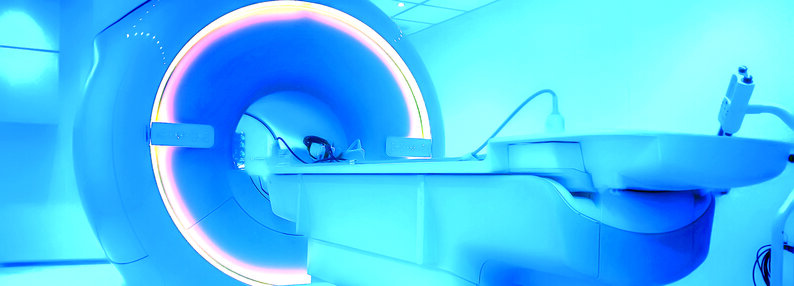


Market and sector review
The positive run that global equity markets have experienced of late continued unabated in July, led once again by the technology and utilities sectors, as well as other economically sensitive areas of the market such as industrials and consumer discretionary. With a resilient economy, supportive labour trends, tame inflation and the AI-driven capital investment boom, it should not be surprising that risk-on investors shied away from healthcare. Within healthcare, life sciences tools and services, biotechnology and pharmaceuticals performed the best, while managed care, healthcare supplies, services and facilities had a particularly difficult month.
July saw the start of Q2’s reporting season that so far has been characterised by some stupendous moves in share prices and sharp rotations among healthcare sectors. The dominant theme was ‘positioning,’ which heavily influenced investors’ reactions to earnings announcements. Heavily out-of-favour Contract Research Organisations, which provide services such as running clinical trials to the biopharmaceutical industry, and life sciences tools and services stocks experienced strong rallies on the back of improved underlying market dynamics and encouraging earnings. On the other hand, crowded sectors such as medical devices and facilities, despite generally positive results, were not rewarded by investors who started to question the durability of the ‘utilisation trade’.
It was clear that utilisation of healthcare showed signs of decelerating but remained elevated in Q2. The heightened utilisation, especially in the Medicaid population and in the so-called exchanges (a type of subsidised commercial healthcare insurance plan), put pressure on managed care organisations, with many insurance companies forced to severely cut their earnings guidance for the year. Finally, the spectre of tariffs on drugs and pressure from the US administration to lower medicine prices weighed on the performance of pharmaceutical companies which otherwise had decent, though largely uninspiring, second-quarter results.
Fund performance
The Company’s NAV increased by 1.5% in July, ahead of its benchmark, the MSCI All Country World Daily Net Total Return Health Care Index, which was up 1.0% (both figures in sterling terms).
Positive contributors relative to the benchmark in July were Argenx, Merus and Avidity Biosciences.
Argenx reported overwhelmingly positive Q2 results, with its key asset beating consensus expectations substantially.
General strength in the biotechnology sector supported Merus and Avidity Biosciences during the month. Specifically for Merus, we think there was renewed interest and appreciation for its pipeline ahead of clinical data being presented at an upcoming medical conference. For Avidity Biosciences, not only did the company receive FDA Breakthrough Therapy Designation for one of its pipeline assets but there was also speculation that it could be an M&A target.
Negative relative contributors in the period under review were Johnson & Johnson*, Thermo Fisher Scientific and Intuitive Surgical.
A lack of exposure to Johnson & Johnson and, for the majority of the month, to Thermo Fisher Scientific was a detractor as both companies’ share price surged after reporting strong Q2 earnings. Finally, as mentioned above, July saw a rotation away from ‘crowded long’ stocks, such as Intuitive Surgical, which underperformed despite a solid Q2 set of results.
We added positions in Steris, Thermo Fisher Scientific, Apollo Hospitals Enterprise and Torrent Pharmaceuticals.
We took the opportunity of a derating in Steris, a medical equipment company specialising in sterilisation, to start a position in the company. We believe that its underlying market remains robust and that revenue growth can re-accelerate after a more subdued period.
Torrent Pharmaceuticals announced the intention to acquire its peer JB Chemicals & Pharmaceuticals in a deal that could yield ample cost and revenue synergies upon full integration
After a challenging few years, Thermo Fisher Scientific reset its mid-term expectations during the second-quarter earnings call. We think the negative earnings revisions should start to bottom out and there is potential for upside if recent underlying industry trends continue to improve.
Apollo Hospitals Enterprise runs India’s largest for-profit private hospital network but also has a loss-making healthcare technology business. The company has initiated the process to separate this business, thereby simplifying its structure, which should narrow its large valuation discount to peers.
Finally, Torrent Pharmaceuticals is an Indian company that specialises in branded generics and other pharmaceuticals. Recently it has announced the intention to acquire its peer JB Chemicals & Pharmaceuticals in a deal that could yield ample cost and revenue synergies upon full integration and therefore be accretive not just to the topline but also to earnings.
The new positions were funded, in part, by the sale of ConvaTec Group, Terumo, Globus Medical, Novartis and Cardinal Health.
Outlook
As the relative discount of healthcare to the broader market keeps on widening, we remain steadfast in our conviction that now could be an interesting time for contrarian investors to revisit our sector. History shows that investing during periods of heightened policy uncertainty can generate strong returns. At the cost of repeating ourselves, all the ingredients for a healthcare rerating are there – demand for healthcare products and services is not diminishing, the industry’s innovation engine is running at full throttle and long-term growth drivers including expansion in emerging markets, preventative care, industry consolidation and improvements in access and affordability remain intact. We hope that, over time, as the dark clouds created by policy uncertainty begin to dissipate, healthcare’s robust fundamentals will be able to shine once more.
*not held




